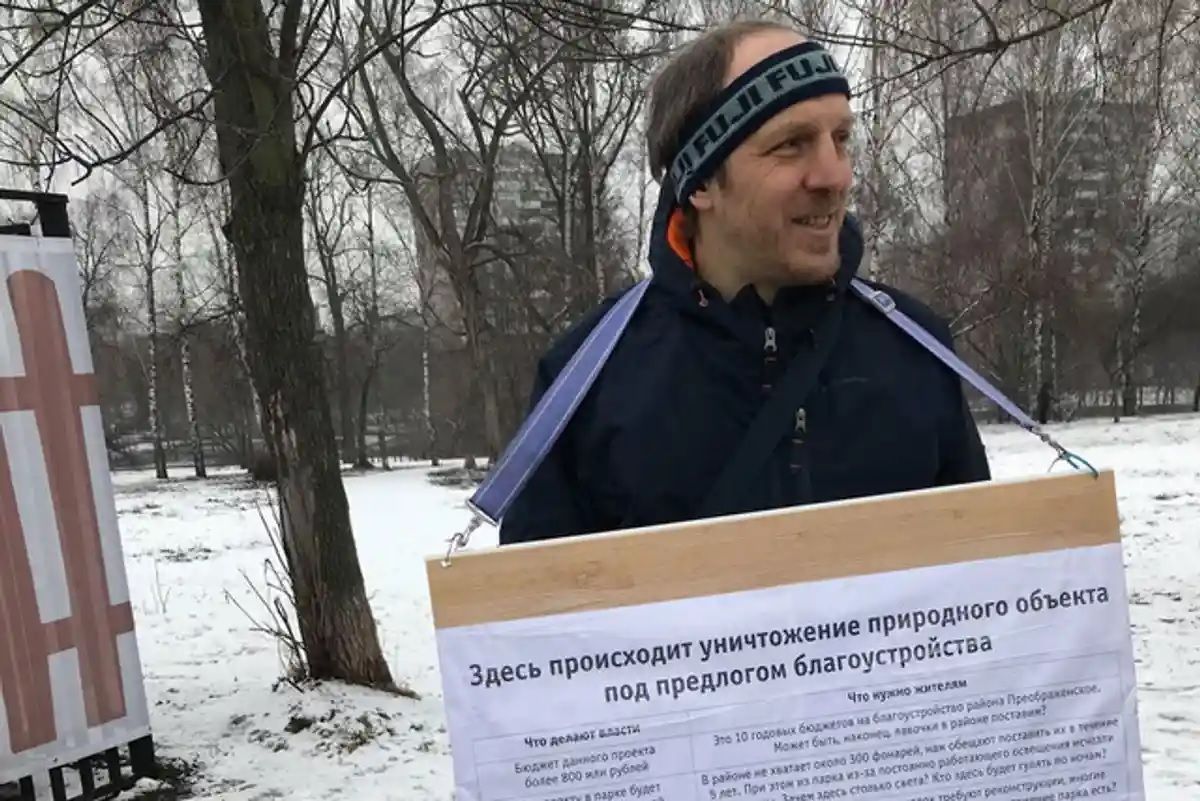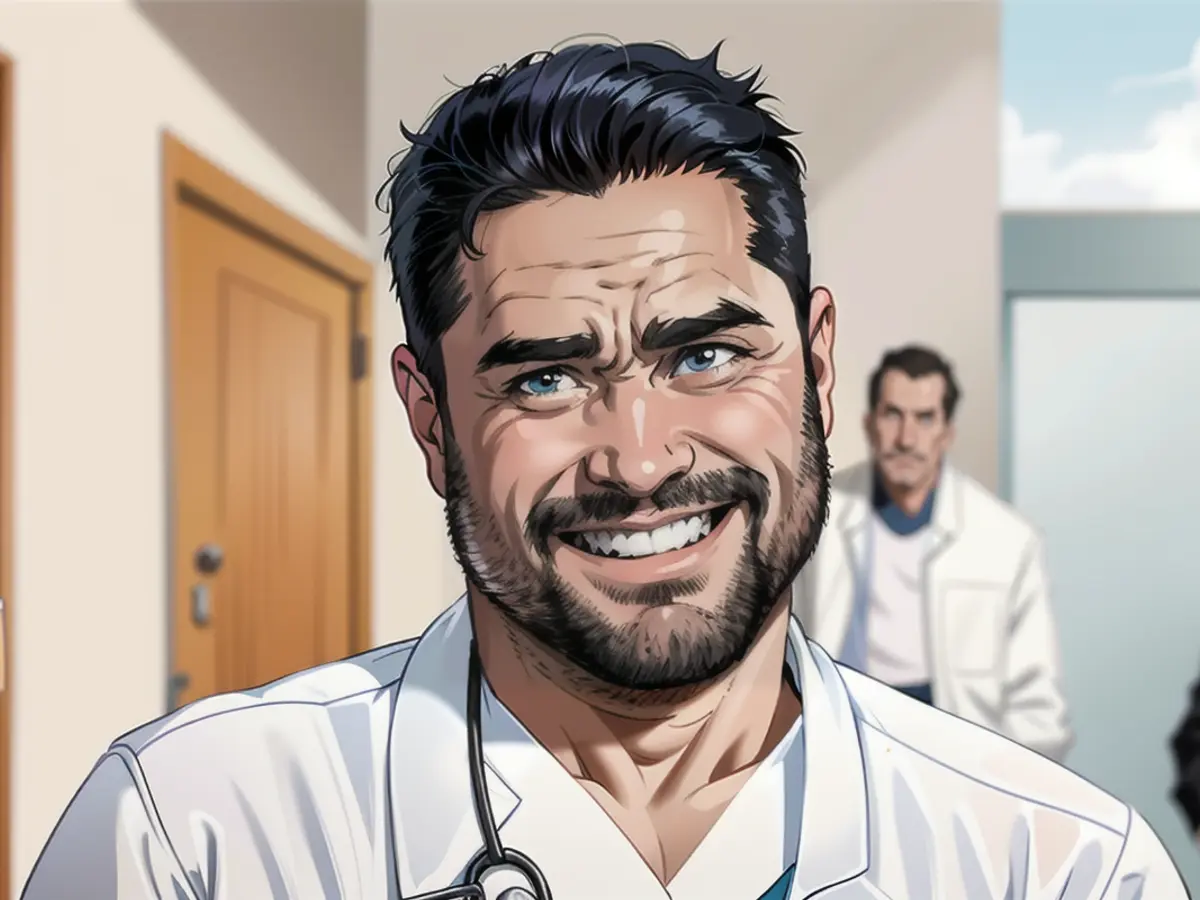Letter against Putin
Kostya Golokteev: Hello Yuri! Tell us a bit about yourself and how you ended up in Germany.
Yuri Volnov: I'm from Russia, from Moscow. I was born there and lived almost my whole life there, except for a few years when I studied at the university in Tver. In 2017, I became a municipal deputy, like many participants in the Katz-Gudkov project (a project organised by Russian politicians Maxim Katz (now residing in Israel) and Dmitry Gudkov (now residing in Cyprus), where legal and technological support was provided to democratic activists in municipal elections - note by Kostya Golokteev).
In spring 2022, I realized that remaining in Russia was no longer an option for me. I didn't rush to leave because my deputy powers expired in September 2022. But I was gradually preparing, collecting documents for repatriation to Israel. This leads me gradually to how I ended up in Germany. In September 2022, the elections took place, and I realized that I was not re-elected because United Russia "piled up" votes in electronic voting.
Мундепы требуют отставки Путина
— Ксения Торстрем (@kseniathorstrom) September 12, 2022
Муниципальные депутаты из 18 разных округов Москвы, Петербурга и Колпино требуют отставки Путина. Текст петиции лаконичный, никого не “дискредитирует”. Если вы мундеп и хотите присоедниться - милости просим. pic.twitter.com/APCUZRlznv
Formally, I remained an acting deputy until the first meeting of the new council, which was literally three or four days away. And I happened to log into Twitter, which I hadn't visited for about five years. And I saw a post from Ksenia Torstrøm, a municipal deputy from St. Petersburg, about a letter demanding Putin's resignation initiated by local deputies. I signed this letter. So to say, before leaving, I decided to slam the door loudly. I forgot about this story because I constantly signed various letters.
And somewhere, probably a couple of weeks later, colleagues wrote to me that against this background, there is an opportunity to submit documents to the German Foreign Ministry to obtain a humanitarian visa. Although I didn't particularly count on it. And then it turned out to be funny. Literally within two or three days, I received a letter from the Israeli authorities that they were ready to accept me and from the German Foreign Ministry. I remember that evening well. I came to my wife and said, "Dear, whether to go or not is not a question. Choose where?". My wife thought about it and said that in Israel the weather is hot, the language is unclear, and we went to Europe. Well, and soon it will be a year since we are in Germany.

Kostya Golokteev: And where are you in Germany?
Yuri Volnov: In Saxony. The first two months we lived in a Red Cross dormitory on the border with the Czech Republic. A small village called Friedersdorf. Now we live in Görlitz. It's on the border with Poland. A very beautiful city, almost unaffected during the war – somehow Soviet troops bypassed it, and nothing was bombed here. There are a huge number of houses built in the 19th century. Like a little Petersburg, toy-like.
Kostya Golokteev: Did you leave Russia for moral reasons? Or is it more of a rational decision related to the real danger due to your anti-war position? What prevailed?
Yuri Volnov: You know, I wouldn't set these two motives against each other. In my case, it was both. First of all, I worked in a state-owned company that, by the time I decided to leave, was sending a large number of people and equipment to the war. I understood that working in such a structure, paying taxes to the state, and generally supporting all this mess with my work is, at the very least, immoral.
Well, and the risks. Sanctions against me were also a real risk. I understood that I couldn't shut up completely. Many people went into internal emigration, just pretended they didn't exist. Unfortunately, this is not my case. I would still interfere somewhere. And I understood that I didn't want to leave my family without a father, without a breadwinner. The third reason was that brainwashing of children in school began. I really didn't like that. These political information sessions started, raising the Russian flag with the anthem, and among the teachers there were such activists who made sure the children sang it. I sabotaged it for a while, allowed the children not to go to the first lesson. But it was clear that it couldn't last long. In general, there were many reasons. Together they formed a critical mass that pushed me to leave.

On the Causes and Consequences of the War
Kostya Golokteev: We understand that the war has fundamentally changed many destinies and lives. What do you think are the roots, the real reasons for this war?
Yuri Volnov: I find the version most plausible that Putin went down the same path as many dictators before him, trying to boost his rating with a little victorious war. But he hit a snag. Putin did not perceive the information about Ukraine's preparedness to withstand such situations as correct. I understand that he really wanted to reach Kyiv in three days and hoped that Europe and the global community would swallow it, just like the situation with Crimea. But it didn't work out. And he can't retreat because this tank doesn't have reverse gear. So, he's completely stuck in this war, grinding up a huge number of lives both on the front and in the rear. It's all terrible. The main reason seems to be wanting a quick victory to boost his rating, which had been shaky since Crimea. It didn't work out.
Kostya Golokteev: Well, the assumption that the Russian army would be welcomed with flowers did not come true.
Yuri Volnov: Yes, I understand that he was fed information about everything being prepared there and the public being ready to welcome liberators from the corrupt Ukrainian government. But it turned out to be untrue.
Kostya Golokteev: By the way, you are one of the few who noticed that many lives are being ground up in the rear as well.
Yuri Volnov: Lives are being ground up, yes. How many people do we see being pressured now for their anti-war position, how many have already been imprisoned, how many are being persecuted or forced to flee from persecution? Many people's businesses have collapsed either due to sanctions or because employees were taken to the front. And, of course, the military losses are enormous. If we believe the figures published by Ukrainians or at least assume that the correct figures are somewhere in the middle between what our Russian official sources and the Ukrainian sources provide, the irrevocable losses in this war are already over 200,000 people. It's a hellish number.
My district, Preobrazhenskoye, where I was elected and lived for over 15 years, has a population of 90,000 people. So, you need to imagine that at one moment, two large districts of Moscow just emptied. And all these people died. And we also need to consider that the number of wounded, maimed, psychologically or physically scarred, is five or six times more. These are huge losses. On the one hand, it seems like not much on the scale of the country, but on the other hand, these are the most able-bodied people who could do something. They have wives, children, families. Many people are involved in this story. And many people suffer from it.
Kostya Golokteev: What outcome of the war seems most likely to you right now?
Yuri Volnov: That's a question for which I simply don't have the expertise. I can talk about what I would like. But what will actually happen, no one knows. It might sound strange, but the outcome that is most in harmony with my inner sense is a scenario that journalist Arkady Babchenko has often painted and, I think, continues to paint—a scenario where he promised to ride into Moscow on a tank. If, for instance, Ukraine drives Russian forces beyond its borders, then everything will settle down. But that won't lead to any global changes in Russia. For there to be global changes in Russia, this regime must be destroyed, and technically destroyed, precisely at the "power center" of this regime. In Moscow, there should be Ukrainian, NATO, or whatever forces to prove the fact that the Russian army physically surrendered Moscow.
Then this regime will cease to exist. There will be some guarantee that in the near future, there won't be any new attempts to play something again. I understand perfectly well that the probability of such a scenario is very small because everyone keeps in mind the nuclear weapons possessed by Russia. Of course, everything there has rotted and been looted a long time ago. But even if a couple of missiles take off, it won't seem like a small matter. So, of course, no one will climb into Moscow. Too bad. It would be worth it.
Both Putin and Hamas are fighting to wipe a neighboring democracy off the map.
— Joe Biden (@JoeBiden) November 21, 2023
America cannot, and will not, let that happen. For our own national security interests—and for the good of the entire world.https://t.co/CS2lUg6ZCW
Kostya Golokteev: That's your idealistic picture, understood. How about considering a more realistic perspective?
Yuri Volnov: A lot depends on how much the West is ready to continue supporting Ukraine. Because if there is no support from the West, Ukraine will likely be able to somehow freeze the situation on the front, but it won't be able to move it in either direction. If the USA, as promised, provides long-range missiles, planes, and so on, and if Europe follows suit, then perhaps Ukraine will be able to reclaim territories. Perhaps even return to the borders of 2014, or at least 2022.
Kostya Golokteev: You and I understand well that the internal life of Russia has been fundamentally reshaped. There is an opinion that Russia has already passed the point of no return, that things have gone so far that it can only be dismantled in some way. How close or distant do you find such an assessment of the situation in Russia?
Yuri Volnov: You know, if I received a dollar every time I hear the phrase "point of no return," I would probably be a millionaire by now. There have been many of these "points of no return" since I started closely observing the processes in politics. When there was a reshuffle, that was a point of no return. When there was voting in car trunks and tree stumps, that was a point of no return. And when it was Crimea, that was a point of no return. Now another one.
I remember studying deformation in physics at school. You stretch a spring first, then release it, and it returns to its previous state. When you start doing it more forcefully, it retains residual deformations, and it doesn't compress back completely. You stretch it more and more. In reality, every subsequent step of the regime changes the country more and more. Living in it becomes worse and worse. It sinks deeper and deeper into the abyss of totalitarianism. Each time we understand that even if we manage to get out of this story, living in this country will be much worse for us in any case.
Or another example. If someone loses a finger, it's unpleasant. But not deadly; you can live without a finger. Then the second finger is lost. Then the leg is lost. Without a leg, it's really bad; you'll have to walk with crutches or ride in a wheelchair. But the head hasn't been shot off yet. So something will happen in this country. And even if you dig a trench with crocodiles around the country, there will still be some life. Something is happening in North Korea too. But what kind of life, what kind of people, what kind of society will it be?
On life in Germany
Kostya Golokteev: Let's switch a bit from the heavy military topic to your life in Germany. Are you involved in any socio-political activities here?
Yuri Volnov: There are two main stories I can tell, and they are related because they are organized by former or still active Russian municipal deputies.
In October, the founding congress of the deputy organization called "Deputies of Peaceful Russia" took place in Berlin. This project unites politicians who have left Russia. Also, several people who are currently physically in Russia have joined this organization. From my point of view, this is unsafe. We warn these people that when the organization starts achieving any results, it will likely be deemed undesirable, a foreign agent, and everything else.
The second story is the exhibition "Faces of Russian Resistance." It was conceived by my colleague Lena Filina, a municipal deputy from one of the districts of Moscow, and Arshak Makichyan, an anti-war activist who was deprived of Russian citizenship. Several showings have already taken place in Europe. Requests are coming from various countries, for example, from Australia. People want to see this exhibition in Japan, the USA. This story has resonated with people, and we will develop it. Ideas are already emerging to create some side projects, such as about Russian scientists who are currently in prison on charges of treason, even though it is about ordinary scientific activities. They simply exchanged their results with foreign colleagues: Chinese, American, and so on. Now they have been accused of treason. No one talks about them at all because the average European cannot comprehend how such a thing can happen.
A scientist who prepared a report with a colleague from China falls under the charge of treason? It is incomprehensible to the European mind. People just can't understand when you try to tell them about it. They don't believe and say that it can't be, that it's fake, some silly joke, and that it doesn't happen. But it does happen. So the whole world knows about Navalny. They know about Yashin, about Kara-Murza too. But no one knows about people who were arrested just so that some FSB major could get an additional medal.
Kostya Golokteev: Do you plan to return to Russia?
Yuri Volnov: At the moment, I understand that returning to Russia is simply dangerous for me. Unfortunately, I can't even visit, check on my parents, or see friends.
Kostya Golokteev: What needs to happen for it to be safe?
Yuri Volnov: There must be a change in the regime, political criminal cases must be stopped, political prisoners must be released. This will be an indicator for me that nothing threatens me in Russia.
Kostya Golokteev: And what is the likelihood that you will return in that case?
Yuri Volnov: It depends on when it happens. I'm getting older. I don't want to flirt, but I'll be 50 next year. With each passing year, it becomes more and more difficult to find my place in my profession and in life. If I can find a good job here, I will think a lot before leaving it and trying to find something in Russia again. I'm not very good at selling myself, so I worked at my previous job for 13 years. Everything suited me. I worked, my salary gradually increased. I was satisfied with everything. And I would have worked there for another ten years if it weren't for the war. So if I find something interesting here, if my children finish school and go to college here, I won't pull them out of here, that's for sure.
Of course, birches, the native home, and all that. But I can't guarantee 100% that even if everything is fine in Russia, with federal structure, democratic parliaments, and all, I'll rush back to build something in Russia. Although maybe I will, I don't know. It depends on many factors.
It's also difficult with the language here. People have a slightly different way of thinking, and the structure of society is different too. It's challenging to adapt to all of this.
Kostya Golokteev: And finally, what would you wish for our readers?
Yuri Volnov: A very interesting question. I was shocked to learn that a significant number of our former compatriots in Germany are pro-Putin. It's actually very strange. I understand a non-Russian-speaking European who finds it difficult to analyze the Russian agenda and news. But when a person speaking the same language as me supports the Russian government, which is absolutely anti-people, anti-human, it seems strange to me. I would advise looking for alternative sources of information, expanding your worldview, and trying to understand what is really happening in Moscow, in Russia. Try to look not only at the glossy cover presented by our official press; it's pure propaganda.

I also want to wish everyone to continue believing in miracles. They sometimes happen. Maybe if we all together wish for some miracle, it is more likely to happen. The world will emerge from the current challenging situation and can pivot towards a more positive and brighter future.





